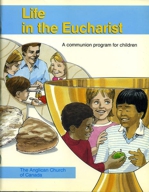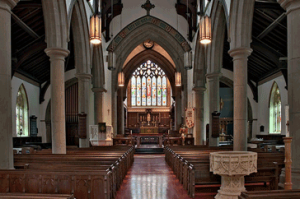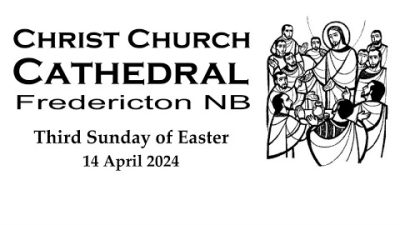 Why Children and Communion?
Why Children and Communion?
Who are these children in our midst?
The children in our churches are, by way of Holy Baptism, full members of the congregation. They need and desire to participate in worship. They need to have their gifts and talents recognized and encouraged. They need to know that their sorrows, concerns, and questions are heard. In short, they need to be ministered to and to have their ministry encouraged. While the Church enhances the life of children, the Church’s life is also enhanced by them.
Unless you turn and become like children, you will never enter the kingdom of heaven. (Matthew 18:3)
For generations Christians have struggled to understand in what way we need to become like children. Certainly not everything a child does is commendable! Hans-Ruedi Weber, in “Jesus and the Children,” suggests that the child’s vulnerability, sense of dependence, and openness to the future is what Jesus commends. There is also much that we can give children. Childhood is a precious time to be appreciated and savoured. The growth and experiences of this period continue to have a profound effect throughout the later stages of adult development. Therefore the way in which we nurture children is extremely important. “Life in the Eucharist” is designed both to nurture children and to allow adults to learn from them.
How may we grow into the pattern of our Baptism?
Baptism is the act of grace which initiates a person into the body of Christ, the communion which is the Church. Baptism is participation in Christ’s death and resurrection, a participation which marks a person as Christ’s own. The Christian identity established in baptism is nurtured in communion; for example, on the day of Pentecost the newly baptized were incorporated immediately into the communal meals (Acts 2:41-47). Baptism is initiation into the family of God and, by extension, into the family meal, the eucharist.
In baptizing children, the Christian community (including parents and sponsors) takes on itself the responsibility of helping the children to grow in the knowledge and love of God. For the child, this growth means gradually taking on the responsibility and privilege of following Christ. One of the ways the community assists the child’s growth is by including children in the celebration of the eucharist.

Traditionally the Church has seen its responsibility in nurturing children as being accomplished through Sunday School and preparation for confirmation. There are, however, some inadequacies in this approach. Being a Christian has as much to do with learning to live a new lifestyle as it does with understanding the specific beliefs of the Church (see p. 146, Book of Alternative Services). The primary lifestyle educators of children are parents. We acknowledge in the baptismal vows that parents are the chief Christian educators of their children. The best Christian education happens when families and the Church community work together.
“Life in the Eucharist” allows parents and the community to be intentionally involved in a variety of options.
Two basic convictions inspired the design of “Life in the Eucharist.”
- Preparing a child for the eucharist is not mainly teaching things about the sacrament. It is initiating that child into a christian way of living and worshipping in a community. It is leading that child to discover the joy of living in communion with God and with others. The eucharist is a sacrament of love and unity. The eucharist is agape.
- Considering the central importance of the eucharist in our christian faith and life, one could spend an entire year teaching about this sacrament. But this would be too much and confusing for young children. The first exploration explains the eucharist as an event through which our lives are changed when we experience it fully.
More on Children and Communion
- Diocese of Fredericton Directive 3.1.2: Children and Communion
- Parent Expression of Interest Form
- Pastoral vision of “Life in the Eucharist” (print format)



















Recent Comments